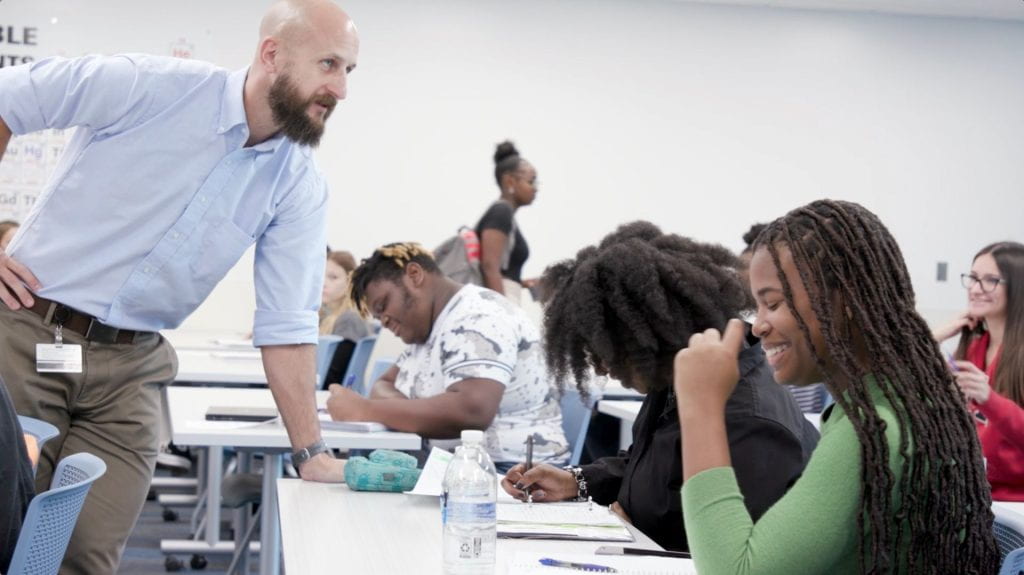Broward College Definition of Teaching and Learning Excellence – Core Values


Broward College Definition of Teaching and Learning Excellence – Core Values
Teaching and Learning Excellence at Broward College is characterized by the following core values: Fostering a Supportive Learning Environment, Assessment and Reflection, Continued Learning in the Area of Discipline, Continued Learning of Evidence-Based Best Practices, Technology to Enhance Instruction.
Fostering a Supportive Learning Environment
Excellence in teaching and learning includes showing empathy, respect, and support of students and their unique experiences. Faculty members who exemplify this competency engage in teaching practices that facilitate the sharing of ideas, invite diverse opinions, and encourage students to persist in meeting academic challenges. Faculty foster a learning environment that ensures accessibility of content for students of all abilities. All individuals are welcomed into a learning community that values its members and treats them fairly.
Excellence in fostering a supportive learning environment may be demonstrated by the following competencies:
- Demonstrate empathy and respect
- Facilitate the sharing of ideas and respectful dialogue
- Foster a sense of belonging through a supportive learning environment
- Apply Universal Design for Learning (UDL) strategies in course design and implementation
- Incorporate Open Education Resources (OER) in course design and implementation
Assessment and Reflection
Excellence in teaching and learning emphasizes assessment and reflection for enhanced student learning. Through assessment and reflection, faculty support student development into independent, creative, and critical thinkers. Faculty should provide a variety of tools and strategies to evaluate learning outcomes, allowing all students to excel and demonstrate enduring understanding of course content. Faculty welcome and solicit student and peer feedback to reflect on their teaching practices for continual improvement.
Excellence in assessment and reflection may be demonstrated by the following competencies:
- Align learning outcomes with assessment strategies
- Incorporate summative and formative techniques to assess course learning outcome
- Utilize authentic assessment strategies to assess course learning outcomes
- Reflect on feedback for continuous improvement
- Apply relevant data to improve teaching and learning
Continued Learning in Area of Discipline
Excellence in teaching and learning requires faculty to keep abreast of new concepts within their field of study and to examine how they can inform our teaching. Continued learning of one’s subject area should include collaborating with others in their discipline, both inside and outside of the college, to discuss emerging research and knowledge and how to better engage students.
Excellence in continued learning in area of discipline may be demonstrated by the following competencies:
- Engage with discipline-area conferences, journals, and professional associations
- Stay current with discipline-area certifications and Continuing Education Units
- Use sabbatical opportunities to stay current with industry and disciple-specific trends
- Submit discipline-specific articles for publication
- Engage in discipline-area undergraduate and graduate coursework
- Present in exhibits and performances related to the field of study
Continued Learning of Evidence-Based Best Practices
Excellence in teaching and learning requires faculty to engage in the scholarship of teaching and learning to stay current with evidence-based teaching practices for all learning modalities. Faculty must continue to reflect on teaching and learning practices and adjust teaching strategies accordingly.
Excellence in continued learning of evidence-based best practices may be demonstrated by the following competencies:
- Engage in teaching and learning conferences, journals, and professional associations
- Stay current with teaching and learning trends and best practices
- Use sabbatical opportunities to stay current with teaching and learning trends
- Submit teaching and learning articles for publication
- Engage in teaching and learning undergraduate or graduate coursework
- Collaborate with colleagues in their discipline and interdisciplinary peers
- Bridge the relationship between disciplinary expertise and teaching expertise
- Engage with the work of external learning partners such as the Association of College & University Educators (ACUE) and Education Advisory Board (EAB)
Technology to Enhance Instruction
Excellence in teaching and learning embraces accessible educational technology to enhance instruction and course delivery. Faculty are intentional about when and how to use technology to support student learning and are aware of barriers that may arise for students when using technology.
Excellence in technology to enhance instruction may be demonstrated by the following competencies:
- Utilize innovative technology for teaching and learning.
- Incorporate assistive and inclusive technology resources
- Demonstrate knowledge of Learning Management Systems
- Incorporate Open Education Resources in course design and implementation
- Engage in continued learning of teaching, classroom, and learning technologies
- Apply UDL strategies in course design and implementation
- Connect students to college technological resources




